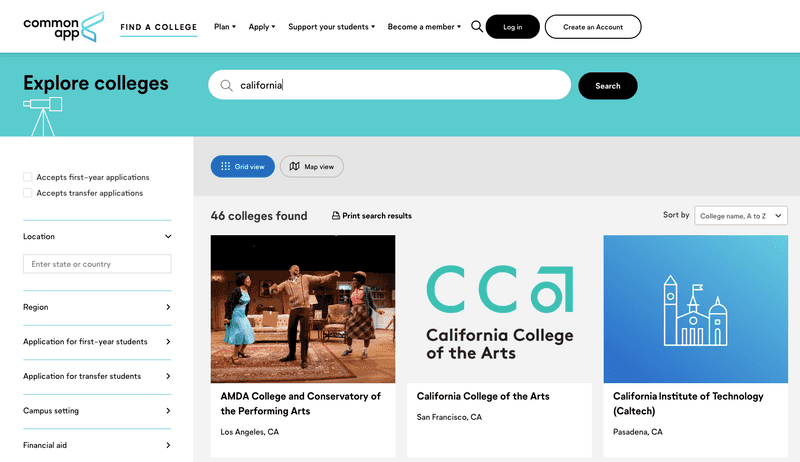Key Takeaways
Test-optional policies, like the one at University of Chicago, mean SAT/ACT scores are not required for admission.
Applying without test scores? Focus on showcasing your strengths through essays, recommendations, and extracurriculars.
University of Chicago’s test-optional policy is open to all applicants, including international and homeschool students.
Test-optional admissions can lead to a more diverse and inclusive student body by removing barriers to entry.
Still, even without SAT/ACT scores, you must present a strong, well-rounded application to be considered for admission.

“University of Chicago Admissions – Top …” from toptieradmissions.com and used with no modifications.
Breaking Down Test-Optional Admissions
Let’s get straight to the point: when a college says it’s test-optional, it means you’re not required to submit SAT or ACT scores as part of your application. But don’t be mistaken, it doesn’t mean tests are banned. It’s your choice whether to send those scores. Think of it as a buffet line – you can pile on the SAT/ACT scores if you think they add to your plate, or skip them if you believe the rest of your application is delicious enough.
What Test-Optional Really Means
Test-optional policies are like opening a door to a room you thought was locked. They invite you to present yourself in the best light, without being overshadowed by a single test score. Most importantly, they acknowledge that you are more than a number. Your creativity, determination, and passion aren’t always captured in a bubble sheet. So, if you’ve got a strong GPA, a knack for leadership, or a portfolio of your work, these can shine brighter in your application.
Reasons Behind the Test-Optional Policy
Why would a school like University of Chicago go test-optional? It’s not just a random decision. It’s because they recognize that standardized tests aren’t the be-all and end-all of your potential. Besides that, these tests can be expensive and stressful, and not everyone has the same access to test prep resources. By removing the SAT/ACT requirement, schools level the playing field and encourage a more diverse group of students to apply.
The University of Chicago’s Test-Optional Policy
Now, let’s zoom in on University of Chicago. They’ve joined the test-optional movement, and that’s a big deal. Why? Because they’re a top-tier university, and their decision sends a message that they’re looking for the thinkers, the dreamers, the doers – not just the test-takers. They want to get to know the real you, the one that can’t be summed up in a four-hour exam.
And guess what? This policy isn’t just for a select few. It’s for everyone – whether you’re from the other side of the world, homeschooled, or right down the street. So, if you’re eyeing University of Chicago, you can breathe a sigh of relief knowing that your future there isn’t hinging on a single test day performance.
How to Apply Without SAT/ACT Scores
Here’s the deal: when you’re applying to UChicago without SAT/ACT scores, you’ve got to put your best foot forward in other areas. Think of your application as a mosaic, with each piece – your essays, your extracurricular activities, your letters of recommendation – coming together to show the full picture of who you are.
First, polish your essays until they sparkle. They’re your voice in the application. For guidance, check out these tips on crushing writer’s block.
Next, gather recommendations that speak volumes about your character and abilities.
Finally, highlight your extracurriculars, especially the ones where you’ve shown leadership or dedication over time.
“Your application should tell a story, and every part of it should contribute to the overall narrative of who you are and what you bring to the table.” – Admissions Officer, University of Chicago
Remember, even though you’re not submitting test scores, you still need to meet the other application requirements, like the transcripts and any supplemental materials UChicago asks for. So, double-check everything and make sure your application is as complete as it can be.
Pros and Cons of Not Submitting Test Scores
Choosing not to submit test scores can feel like a gamble, but it’s a strategic decision. On the plus side, if your scores aren’t reflecting your true potential, leaving them out can allow other aspects of your application to shine. However, if your scores are strong, they can bolster your application, serving as another proof point of your academic readiness. It’s all about playing to your strengths and understanding the narrative you’re creating with your application materials.
Maximizing Your Chances at UChicago
To maximize your chances at UChicago, especially if you’re going test-optional, you need to think about your application as a whole. It’s like putting together a puzzle where each piece is crucial. Without test scores, the other pieces—your grades, essays, recommendations, and extracurricular activities—must fit together perfectly to complete the beautiful picture of who you are.
Focusing on the Application’s Holistic Parts
UChicago, like many schools today, takes a holistic approach to admissions. This means they look at everything you bring to the table, not just your academic achievements. They’re interested in the full spectrum of what makes you, well, you. So, when you’re putting together your application, think about how each part can tell a story about a different facet of your personality or abilities.
The Role of Essays and Recommendations
Essays are your chance to speak directly to the admissions committee. Use this opportunity to share your voice, your story, and what you’re passionate about. Recommendations, on the other hand, allow others to vouch for you. Choose recommenders who know you well and can speak to your strengths with specific examples. Together, these elements can paint a vivid picture of your potential as a UChicago student.
And remember, the more personal and detailed your essays and recommendations are, the better. They should reflect your individuality and give insight into your character that grades and test scores can’t convey.
Alternatives to Standardized Tests
If you’re not submitting standardized test scores, consider what else you can include that showcases your academic prowess and potential. Advanced coursework, such as AP or IB classes, can demonstrate your ability to handle college-level work. Additionally, any independent research or academic competitions can be a testament to your dedication and intellectual curiosity.
Think outside the box, too. Have you started a project or initiative that shows your leadership and problem-solving skills? Maybe you’ve taken online courses or pursued learning in areas of personal interest. These are all valuable and can help fill the space left by test scores.
What to Include Instead of SAT/ACT Scores
So, you’re not including SAT/ACT scores in your application. Now what? Here’s what you can highlight:
Your GPA and class rank, if available, to show your academic performance over time.
Any honors or awards that recognize your academic or extracurricular achievements.
Portfolios or writing samples that showcase your creativity and expertise in a subject area.
Relevant Extracurriculars and Achievements
Extracurriculars tell the story of who you are outside the classroom. They show your passions and commitments. Whether you’re the captain of the soccer team, the lead in the school play, or a volunteer at a local nonprofit, these activities highlight your leadership skills, teamwork, and dedication—all qualities that UChicago values.
Understanding the Impact of Going Test-Optional
When UChicago went test-optional, it was a game-changer. It signaled a shift towards greater accessibility and inclusivity in higher education. But what has been the actual impact? Let’s look at the numbers and see what they tell us about the effectiveness of this policy change.
Statistics: Before and After the Policy Change
Before going test-optional, UChicago already had a competitive applicant pool. After the change, they saw an increase in applications, which suggests that the policy may be encouraging more students to apply, especially those who might have been deterred by standardized testing requirements.
Let’s not forget, though, that the number of applications alone doesn’t tell the whole story. The quality and diversity of the applicant pool are also crucial factors. And on that front, UChicago reports that they have seen increases in both, indicating that the test-optional policy may be helping to level the playing field for all students.
Does Test-Optional Benefit Diversity and Inclusion?
One of the most compelling arguments for test-optional policies is their potential to enhance diversity and inclusion on college campuses. By removing a barrier that disproportionately affects underrepresented students, schools like UChicago are opening their doors wider to a range of backgrounds, experiences, and perspectives. This not only enriches the learning environment but also better prepares all students for the diverse world they’ll enter after graduation.
So, if you’re considering applying to UChicago or any other test-optional school, remember this: your application is a mosaic of your life, and you have the power to choose which pieces to include. Show them who you are, in all your unique glory, and let them see why you’d be a fantastic addition to their community.
FAQs
As you consider the test-optional application route to the University of Chicago, questions are bound to arise. Let’s tackle some of the most common inquiries to give you a clearer picture of what to expect and how to prepare your application.
Is a Test-Optional Policy Better for All Students?
Whether a test-optional policy is better depends on the individual. For students who feel that their SAT or ACT scores don’t accurately reflect their academic abilities or potential, not submitting test scores can be a huge relief and a positive alternative. However, if you have strong test scores, they can serve as an additional asset in your application. Ultimately, the test-optional policy provides flexibility, allowing you to present the application that best represents you.
How Does UChicago Evaluate Test-Optional Applications?
The University of Chicago assesses test-optional applications with a holistic approach. This means they look at every single part of your application to get a sense of who you are as a student and as a person. Your essays, recommendation letters, extracurricular activities, and academic record all play pivotal roles in their decision-making process. They understand that talent and potential are not solely defined by a test score.
Can I Change My Mind After Opting Out of Testing?
At the University of Chicago, once you’ve chosen the test-optional route, you typically can’t submit your SAT/ACT scores later in the application cycle. It’s important to be certain of your decision when you apply. However, policies can change, so it’s always best to check directly with the admissions office for the most current information.
“Each application tells a unique story. Whether you include test scores or not, make sure your story is compelling, authentic, and demonstrates your readiness for the academic rigors of UChicago.” – Admissions Counselor, University of Chicago
Will Applying Test-Optional Affect My Eligibility for Scholarships?
At the University of Chicago, applying test-optional will not affect your eligibility for scholarships. Scholarships are awarded based on a holistic review of your application, similar to the admissions process. The university is committed to recognizing and supporting outstanding talent in many forms, not just test scores.
Is Test-Optional the Future of College Admissions?
Test-optional admissions have been gaining momentum and could very well represent the future of college admissions. Many institutions are recognizing the value of a more inclusive and comprehensive review process that allows a diverse array of students to showcase their strengths. While not all colleges have adopted this policy yet, the trend is growing, and the success of test-optional admissions at schools like the University of Chicago is likely to influence others.
In conclusion, the University of Chicago’s test-optional policy is a significant step towards a more equitable and personalized college admissions process. It allows you to highlight the parts of your academic and personal journey that you’re most proud of. Remember, this policy is about you – it gives you the power to decide how you want to be evaluated. So, take this opportunity to shine in your own way and show UChicago why you would make an exceptional addition to their campus community.




